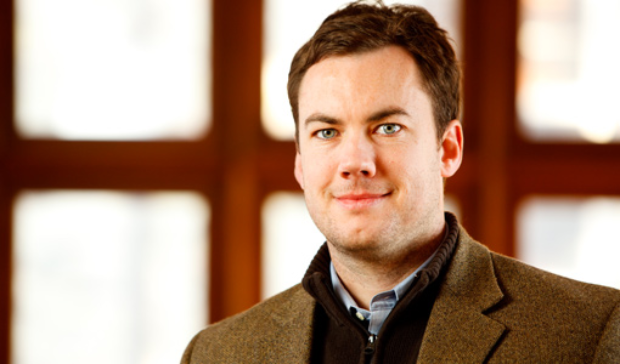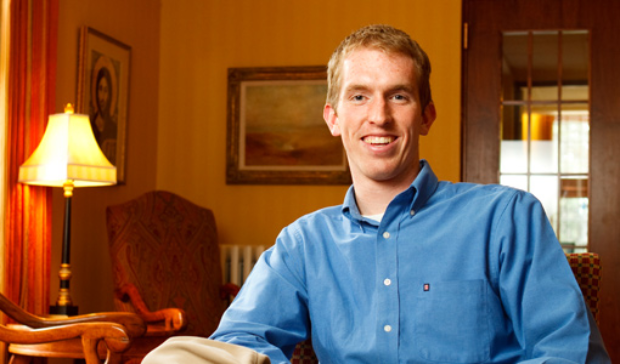"The serious study of any academic topic … is best prepared for by a wide and deep acquaintance with the fundamental issues presupposed in all such studies." – The John U. Neff Committee on Social Thought, University of Chicago
It shouldn't be a surprise that Catholic Studies' newest professor, William Junker, was attracted to the department in part because of its interdisciplinary nature. Junker, who will teach his first classes for Catholic Studies in the fall, is completing a joint Ph.D. from the University of Chicago's Department of English Language and Literature and its Committee on Social Thought. The Committee on Social Thought promotes an interdisciplinary approach to study, and students read from a number of ancient and modern texts. Junker describes it as "a group of faculty and students from all disciplines in the humanities and social sciences who attempt to address a set of questions whose answers require input from different disciplines."
Junker was attracted to the Committee on Social Thought, because "it afforded me an opportunity to study a wide range of texts with a wide range of faculty. Specialization sets in so quickly. It's hard to study history, theology and literature. The Committee on Social Thought is designed to enable you to do just that. I had known about the committee during my undergraduate years. It has a reputation for serious intellectual work. I began my Ph.D. work elsewhere. It was a fine program, but it wasn't a good fit for me. I wanted a broader experience." Even among the interdisciplinary scholars attracted to the Committee on Social Thought, Junker is somewhat unusual. It is rare to get a joint Ph.D. from the committee and another department, as he has done.
While Junker's love of knowledge is interdisciplinary, his joint Ph.D. indicates his special passion for literature. His dissertation topic is on the relationship between love and heroic action in English Renaissance Poetry. "I explore how love produces and complicates heroic action," he explains, "and I ask questions such as, 'Does love distract?'" He also explores ethical and theological issues related to his topic. He focuses on the poetry of Philip Sidney, Edmund Spenser, William Shakespeare and Christopher Marlowe.
In addition to his appreciation of the interdisciplinary nature of the Catholic Studies Department, Junker also appreciates its "intentionally Catholic approach to fundamental questions through lines of historical Catholic spiritual and intellectual traditions." Like the Committee on Social Thought, Catholic Studies attempts to answer "fundamental questions pertaining to human beings, culture and society;" however, Catholic Studies approaches these questions from a distinctly Catholic perspective.
Junker will be teaching different classes within the department. He will be able to make complementary contributions to Mary Reichardt and Father Michael Keating's work in the area of literature, including contributions in the areas of the early Reformation and Counter-Reformation and in literary criticism. "My education up to this point has prepared me for teaching in Catholic Studies," he says. "My training enables me to contribute to the interdisciplinary nature of the department and its desire to unite several fields under the Catholic intellectual tradition." He appreciates the emphasis on teaching and the intellectual relationships between students and teachers at St. Thomas. "I'm excited about the Catholic Studies Department's high commitment to that understanding, and I will add to it."
Junker is married and has a one-year-old daughter. He enjoys exercising and sports, and he describes himself as "a habitual reader of detective fiction and police procedurals."
Read more from Perspectives







